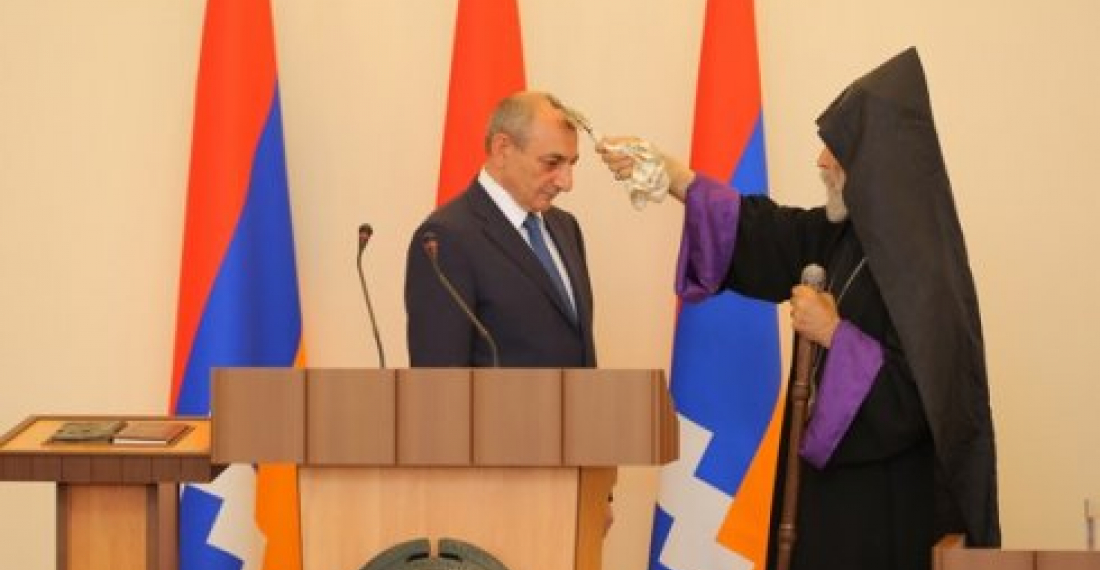Bako Sahakyan was on Thursday (7 September) sworn in for another term as president of the self-declared Nagorno-Karabakh Republic (NKR). The ceremony was held in the territory's parliament in Stepanakert.
Nagorno-Karabakh is formally recognised as part of Azerbaijan by the international community, but the Armenian population of the territory seceded during the conflict in the 1990s. The Azerbaijani population of the territory was displaced as a result of the conflict.
Sahakyan was elected president for a third term by the parliament of the territory on 19 July. He will serve until 2020, when a new president will be elected by popular vote among the Armenian population of Nagorno-Karabakh. In his inauguration speech Sahakyan was quoted as saying, “Over the past years, we have carried out and are carrying out a mission aimed at keeping the Armenian people’s honor high. We will do everything to keep the Armenian people’s honor and dignity high in the future, too.”
source: commonspace.eu with agencies
photo: The inauguration of the president of the self-declared Nagorno-Karabakh Republic, Bako Sahakyan, on 7 September 2017.







